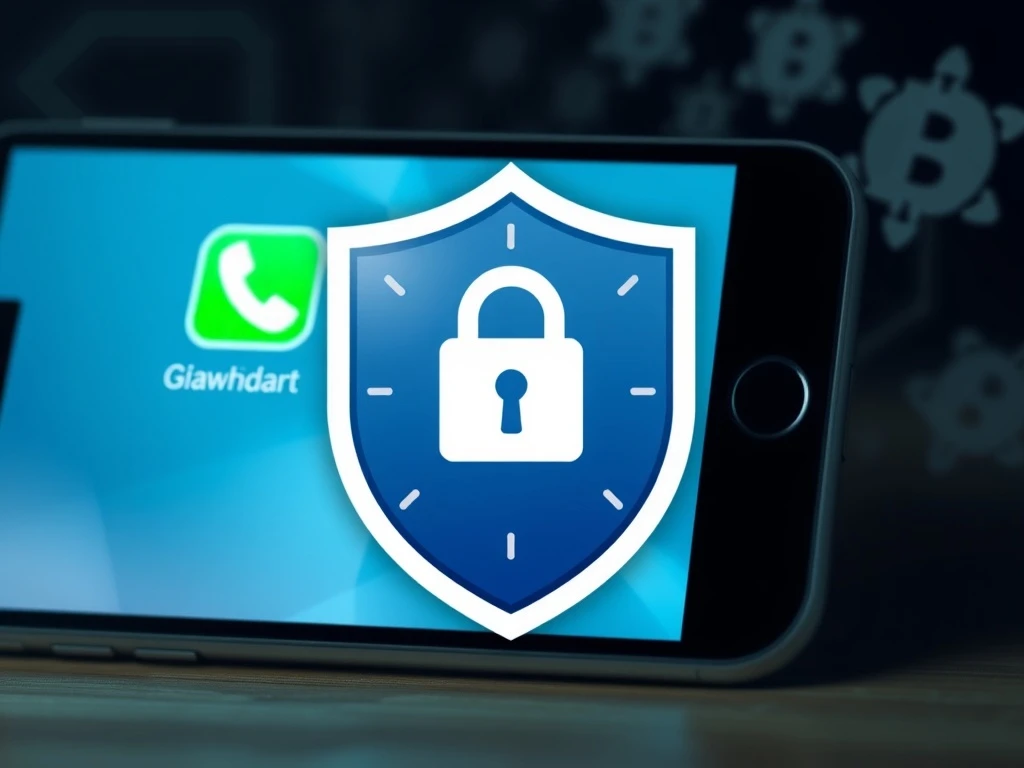Critical Unity Android Flaw Threatens Crypto Wallets: Urgent Protection Guide

A silent threat has emerged in the world of mobile gaming. A significant Unity Android flaw now poses a direct risk to your digital assets. This vulnerability allows malicious actors to potentially compromise your crypto wallet security. For gamers and crypto holders alike, understanding this threat is paramount. Immediate action is crucial to safeguard your funds. This guide details the vulnerability and provides actionable steps to protect your investments.
Understanding the Unity Android Flaw
The Unity gaming platform, a cornerstone for countless mobile applications, is currently addressing a critical vulnerability. This flaw specifically targets Android-based mobile games. Sources confirm that it enables third parties to inject malicious code directly into games. Consequently, this creates a significant risk for users. Projects developed with Unity dating back to 2017 are affected. While primarily impacting Android, the vulnerability also extends to Windows, macOS, and Linux systems to varying degrees. Unity is now quietly rolling out fixes to selected partners. Public guidance is expected soon, highlighting the urgency of the situation.
Google has acknowledged this serious issue. A Google spokesperson stated, “Unity is making a patch available to app developers to fix this issue, and developers should update their apps immediately.” They further assured that “Google Play will support helping developers release patched versions of their apps as quickly as possible.” Importantly, Google has not found malicious apps exploiting this flaw on Play Store currently. However, the potential for exploitation remains high, making awareness vital for all users.
What is the Mobile Gaming Vulnerability?
This newly discovered flaw represents a significant mobile gaming vulnerability. Experts describe the threat as an “in-process code injection.” This means unauthorized code can run within a game’s environment. While a full device takeover isn’t confirmed for all scenarios, the path could escalate. Under specific conditions, device-level compromise on Android becomes a real possibility. Even without complete device access, the malicious code can execute various harmful actions. These include:
- Attempting overlays: Malicious interfaces can appear over legitimate apps.
- Input capture: Keystrokes and screen taps can be recorded.
- Screen scraping: Sensitive information displayed on your screen can be secretly copied.
These actions directly target personal credentials. Critically, they can expose sensitive information like crypto wallet security seed phrases. Therefore, users must remain vigilant and apply protective measures. The widespread use of Unity, powering over 70% of top mobile games, amplifies this threat. Millions of gamers could be at risk if developers do not update their applications promptly.
The Immediate Threat: Code Injection and Your Crypto Wallet
The core danger lies in the code injection threat. Malicious code running within a trusted game environment is difficult to detect. It bypasses typical security measures. This injected code can specifically target mobile crypto wallets. It can monitor your activities or even present fake login screens. Imagine logging into your game, only for hidden code to record your wallet’s seed phrase. This scenario is precisely what security experts fear. The vulnerability creates a backdoor, allowing bad actors to steal your digital assets without your direct knowledge.
Such an attack could lead to devastating financial losses. Unlike traditional bank accounts, crypto transactions are often irreversible. Once funds are stolen from your wallet, recovery is extremely difficult. Therefore, understanding the mechanics of this threat is the first step in defense. Gamers, especially those who also hold cryptocurrencies on their mobile devices, face a dual risk. Their entertainment could become a gateway for theft. Protecting yourself means understanding where the dangers lie and how to counter them effectively.
How to Protect Crypto Wallets from This Flaw
Protecting your digital assets from this Unity Android flaw requires proactive steps. Fortunately, several measures can significantly reduce your risk. These strategies focus on updating your software, careful app installation, and smart security practices. Following these guidelines will bolster your crypto wallet security against potential exploits.
Essential Protection Strategies:
Mobile gamers should immediately implement these protective measures:
- Update Your Games Promptly: As Unity rolls out patches, game developers will integrate them. Always update your Unity-based games as soon as new versions become available. These updates contain the crucial fixes for the vulnerability.
- Avoid Sideloading Apps: Do not install apps from non-official or third-party app stores. Also, refrain from downloading Android Application Packages (APKs) from untrusted websites. Sideloaded apps bypass Google Play’s security screening. Malicious actors could distribute modified, compromised versions of legitimate games this way. Furthermore, sideloaded apps will not automatically receive security updates or patches, leaving you exposed.
- Review Device Permissions: Regularly check the permissions granted to your gaming apps. Disable any unnecessary overlays or accessibility services that run while you are gaming. These permissions can be exploited by malicious code for input capture or screen scraping. Grant only the essential permissions for an app to function.
- Practice Risk Segregation: For maximum security, consider keeping your crypto wallets on a separate device or account from your gaming activities. This creates a physical or logical barrier. If your gaming device becomes compromised, your crypto assets remain safe on an uncompromised system. This is a highly recommended practice for anyone holding significant cryptocurrency.
By diligently applying these steps, you can significantly enhance your ability to protect crypto wallets. Staying informed and proactive is your best defense against evolving digital threats. This is an ongoing situation, and further information will be added as it becomes available. Always prioritize your digital security.







